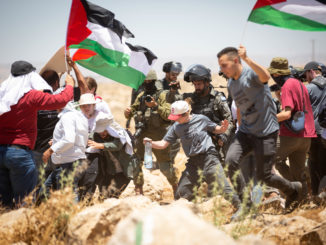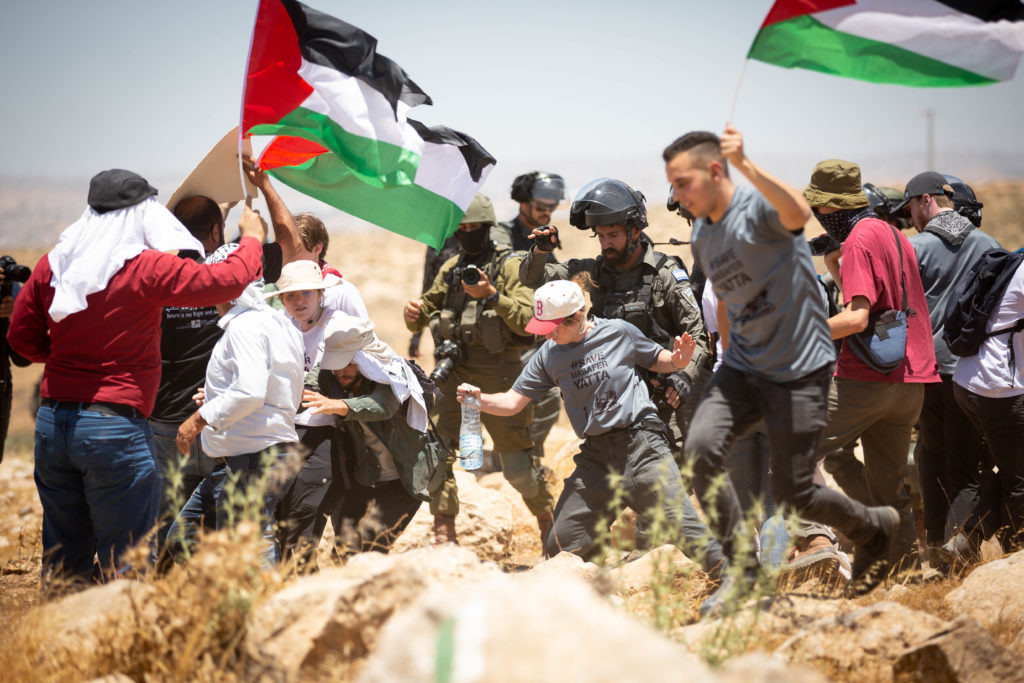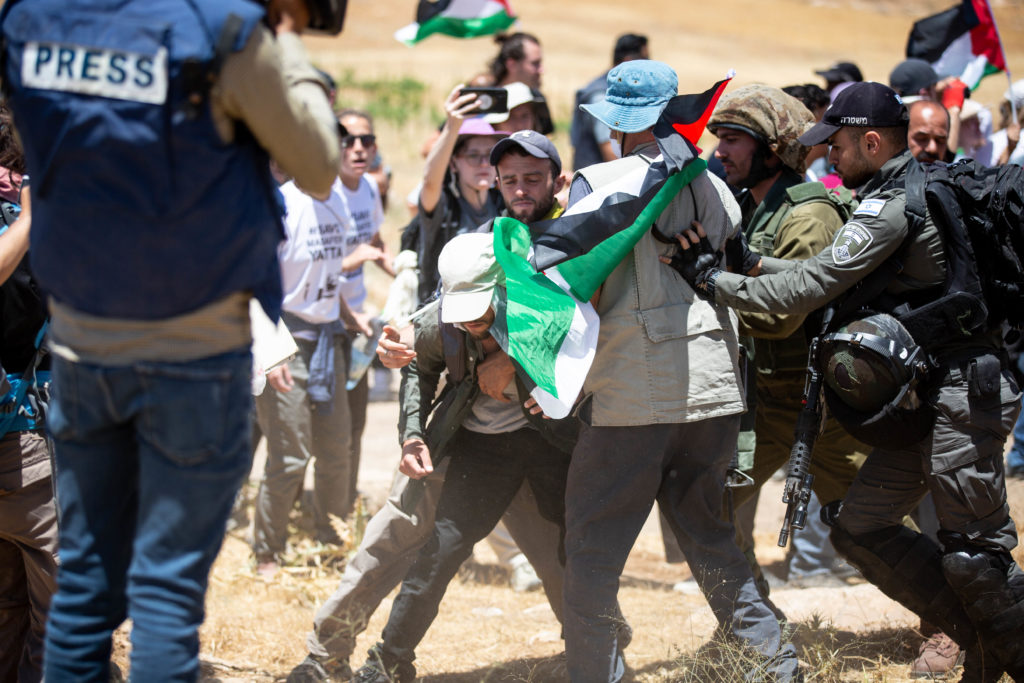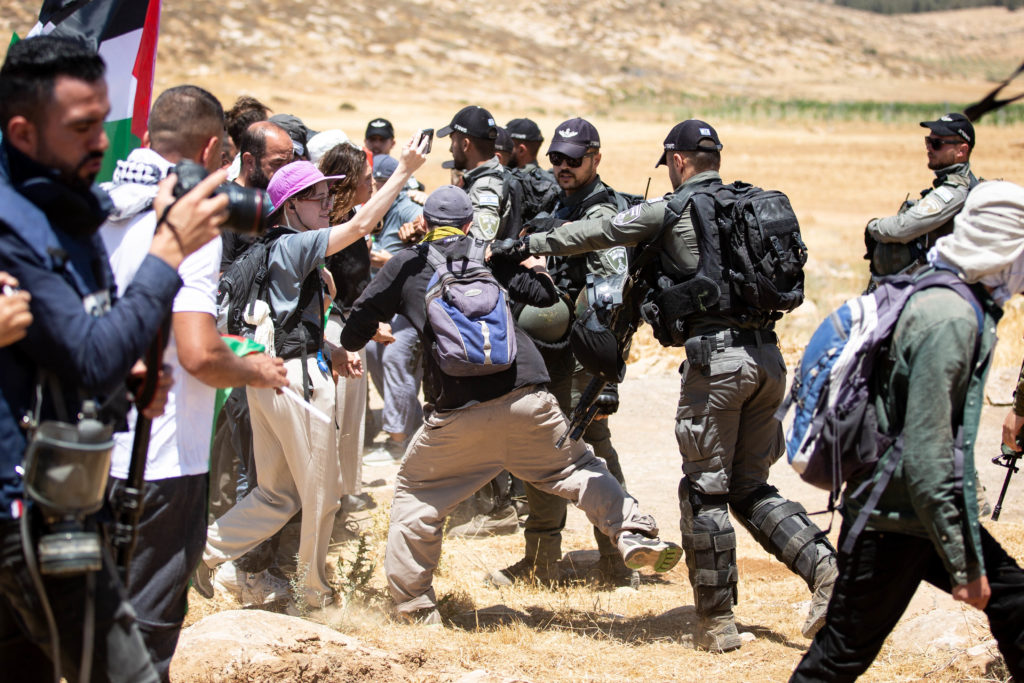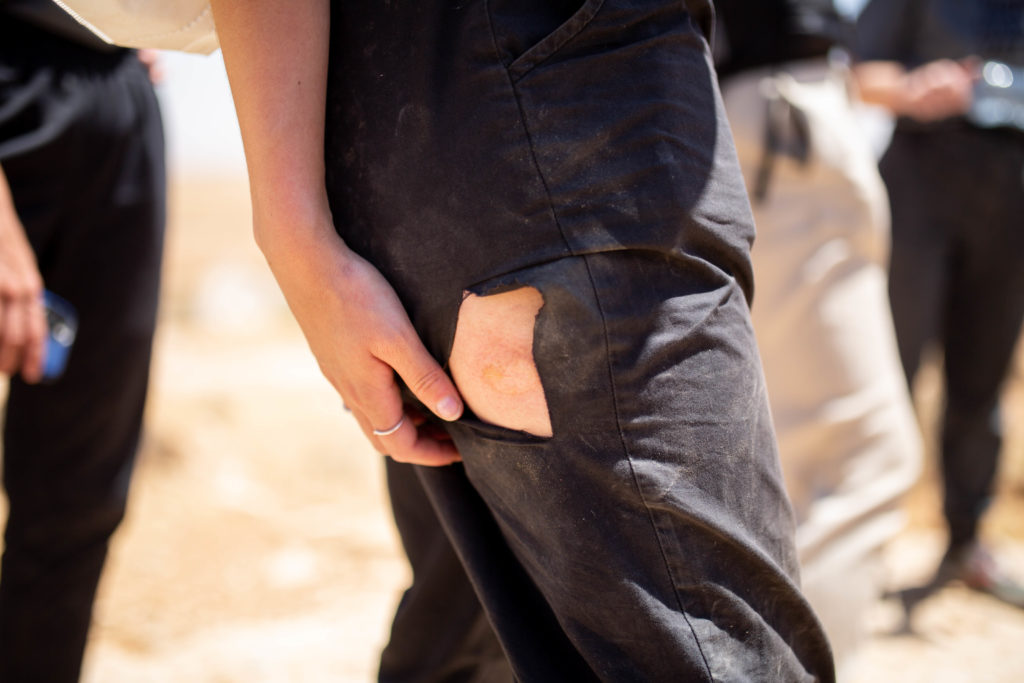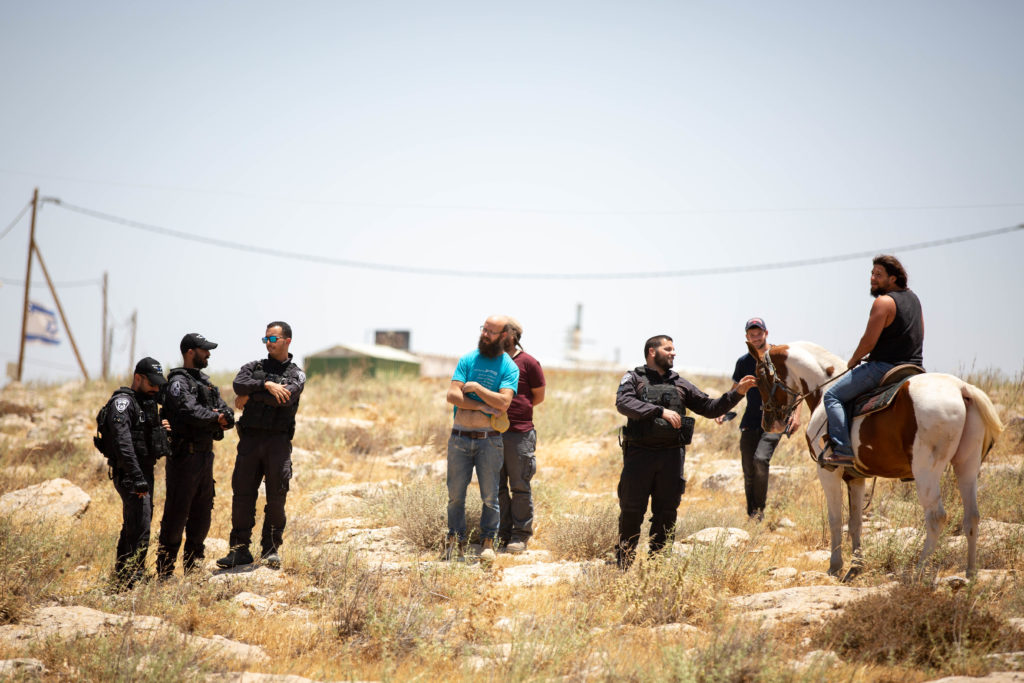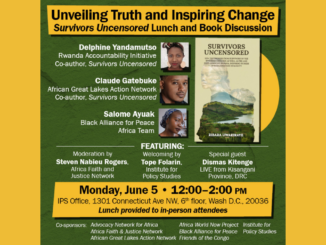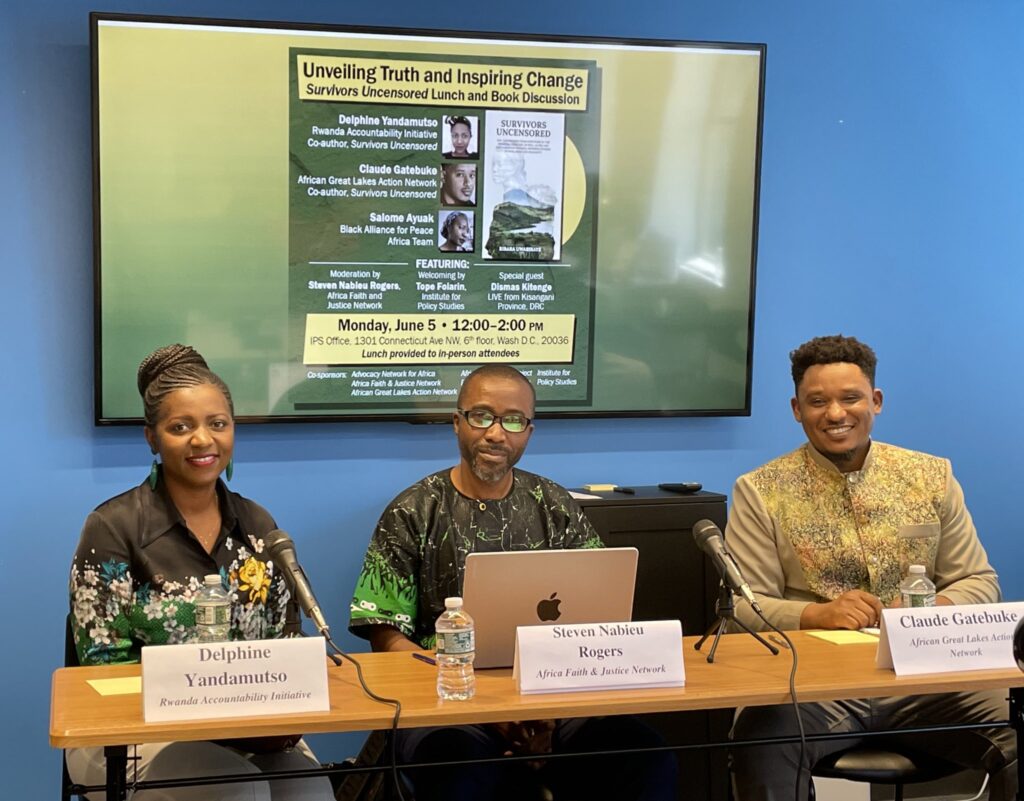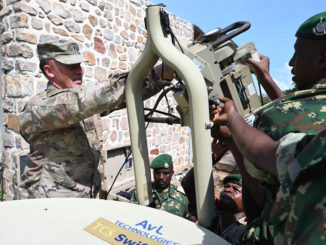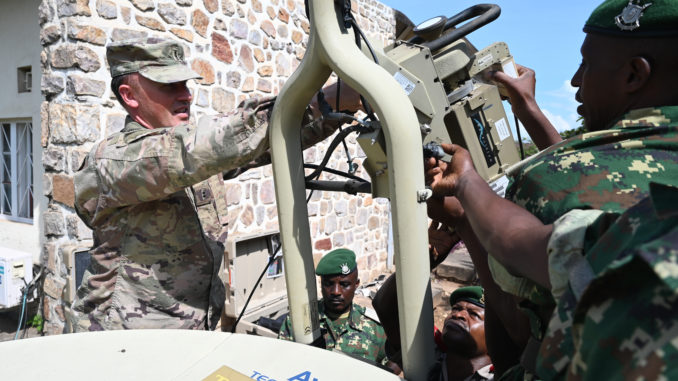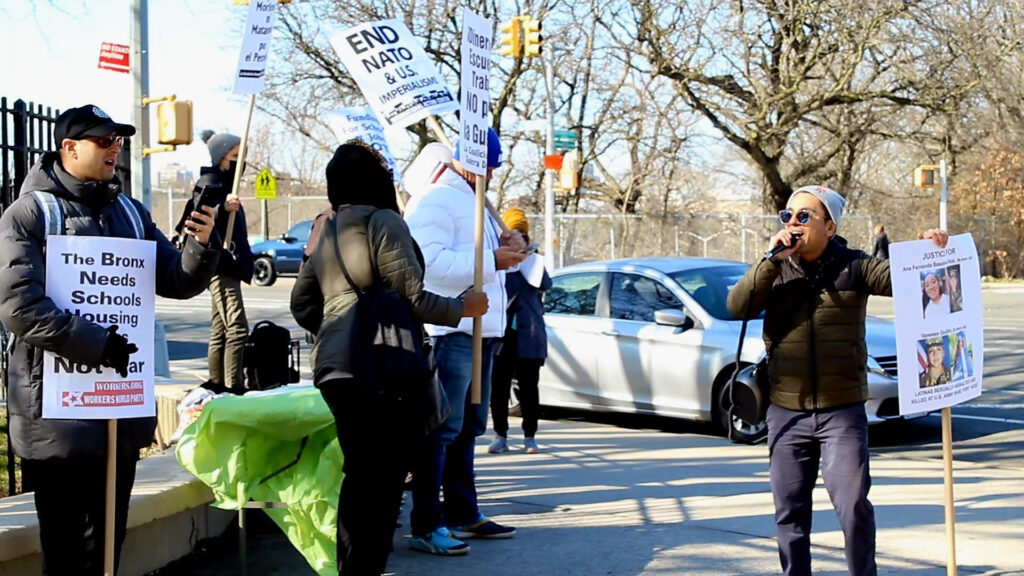
Editor’s Note: This article originally appeared in Workers World.
Dozens of Bronx public school parents, teachers, students and community activists gathered on March 20, the 20th anniversary of the U.S. invasion of Iraq, to oppose a military recruitment fair, hosted by U.S. House Representatives Alexandria Ocasio-Cortez (AOC) and Adriano Espaillat, at Renaissance High School in the Bronx. The grassroots Bronx Anti-War Coalition organized the demonstration.
The protesters aimed to educate students and parents about the violence and dangers that Black, Brown and Indigenous youth face entering the military. “A third of women in the military experience sexual harassment and assault,” said Richie Merino, a Bronx public school teacher and community organizer. “The rates are even higher for women of color. We demand justice for the families of Vanessa Guillén and Ana Fernanda Basaldua Ruiz,” two 20-year-old Latinas who were sexually assaulted and killed after speaking up at Fort Hood U.S. Army base in Texas.
Outside the AOC-endorsed military recruitment fair, Mohammed Latifu of the Bronx spoke to a group of community members. The group had gathered in memory of Latifu’s 21-year-old brother, Abdul Latifu, who was murdered on Jan. 10 at Fort Rucker, a U.S. Army base in Alabama. Abdul had been in the Army for only five months when he was bludgeoned to death with a shovel by another soldier.
Through tears, Mohammed shared how he and his family have been kept in the dark by military investigators and still await answers. He said their parents can’t sleep at night due to the senseless murder of their son Abdul.
“We really want to hear what happened,” Latifu said. “What took place? What transpired? Until today, no answers. No phone calls. We still don’t have any updates. Anybody who was thinking about enlisting their kid in the military, I think you better think again. Don’t do it. I wouldn’t dare ask my kid’s friends or anybody to join the military.”
Outside the @aoc sponsored U.S. military recruitment event at low-income public high school in the Bronx, we invited Mohammed Latifu to speak, who is seeking justice for his 21yo brother, Abdul Latifu, who was murdered in Jan at Fort Rucker, a US Army base in AL #JusticeForLatifu pic.twitter.com/29xA7VZaTY
— U.S./NATO = State Sponsors of Terrorism (@bxcommie) March 21, 2023
‘They’re Killing Their Own’
“They say they ‘protect’ the country,” Latifu continued. “They’re killing their own. They’re molesting these women that go over there. These kids, young men and women that go over there, they’re sexually harassed, and then they kill them and try to cover it up.
“They’ll tell you, ‘sorry for what happened, our condolences.’ No, keep your condolences! We want answers. What we really want is justice — justice for everybody who has had to endure this and their families,” Latifu concluded.
Brx Greens join Brx Antiwar activists to protest against Rep. AOC & Espaillat Military Fair at Bronx Renaissance High School 3/20/23 @gpny @gppeaceaction @GPUSBlackCaucus @gaijingirl2004 @JosBtrigga pic.twitter.com/aNP9CBzM5u
— Bronx Green Party (@Brx_Greens) March 22, 2023
Outside the event, representatives from IFCO (Interreligious Foundation for Community Organization)/Pastors for Peace informed students about alternative ways to “travel and see the world” without the military. They spoke about how to apply to the Latin American School of Medicine (ELAM) in Cuba and receive a free medical degree. Chants of “Cuba Sí, Bloqueo No!” broke out in the crowd.
Claude Copeland Jr., a Bronx teacher and member of About Face: Veterans Against the War, shared his experiences as a victim of the poverty draft. He spoke about how recruiters pitched the military as the only way to advance economically and secure safe, independent housing. They never told him about alternatives or other options. If you have no resources, “you have to sign your life away,” he said.
Community members criticized Ocasio-Cortez for abandoning her antiwar campaign promises to oppose predatory recruitment tactics by U.S. military recruiters, who target young, low-income Black and Latinx children.
“Only three years ago,” Merino said, “AOC introduced an amendment to prohibit military recruiters from targeting kids as young as 12 through online gaming. She understands the U.S. military preys on vulnerable, impressionable kids. For AOC to now use her celebrity status to headline a high school military recruitment event, in the Bronx, signals that she has turned her back on the Black, Brown and migrant working-class community that elected her into office.”
“We don’t want our children to train to kill other poor, Black and Brown people like themselves. The best thing we can do now is to grow the movement to completely remove police and military recruiters from our schools,” Merino concluded.

